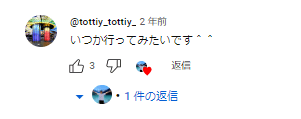The form てみる is used to express the verb try, in the sense of trying to do something.
In English, when we use the verb to try we can mean 2 different things:
- Trying a new thing for the first time or without a specific goal (
I'd like to try that dish) - Make an effort to try to achieve a goal (
I'll try my best)
These two meanings are expressed by two different grammatical forms in Japanese:
- When we intend to try for the first time or without a goal, we use the form てみる
- When we intend to try to reach a goal, we use ようとする
Specifically てみる is used when we try to do something just to see how it is or what will happen, and also when we try to do something that we expect to have a certain result (let's try to do this).
Although てみる simply translates to try, the literal meaning is more like let's try and see
When てみる is used in the past tense form てみた it implies that the attempt to do something was successful (unless otherwise specified)
The use of てみる does not imply any negative consequences in trying and failing
How the expression てみる is formed
To use the form てみる just conjugate the verb we "try to do" in the te form and add みる:
Examples てみる
I'll try on the new coat.
日本語を教えてみる?
Do you want to try teaching Japanese?
よく考えてみる。
I'll think about it.
In this example we see how the meaning of try is not always explicit in translation. The verb 考える means to think (in the sense of consider). Conjugated in the form てみる it expresses the meaning of try to think about, which is then translated as think about it, without using the word try.
A short comment on a travel video using てみる in the volitional form てみたい: I want to try to do, I would like to do:

I would like to go there one day.
Similar grammar points in Japanese 📚
~ていく
~ていく (teiku) Meaning Japanese Grammar - Keep Doing
てよかった
てよかった (te yokatta) Meaning Japanese Grammar - I'm Glad That...
それでもいい
それでもいい (soredemoii) Meaning Japanese Grammar - It's Fine
それでも
それでも (sore demo) Meaning Japanese Grammar - Still
させられる・せられる
させられる・せられる (saserareru serareru) Meaning Japanese Grammar - To Be Made To Do Something
ないで
ないで (naide) Meaning Japanese Grammar - Without Doing